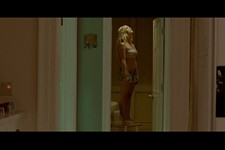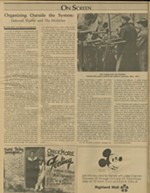Hollywood's Outlaw Saint
By Louis Black, Fri., Oct. 22, 1999
Sam Peckinpah is dead. Heart failure's listed as the official cause of death, but actually he died of vision and frustration, of desire and its lack of fulfillment, of restraint and restriction, of an industry more interested in packages than stories. Peckinpah was a filmmaker in the purest sense of the word. He had this world inside his head, that he was just dying to get on film, a sense of the way they should be. He didn't want to teach, he had no truths to impart; his was a stormy poetic voice that had to get out, had to be put on the screen, probably for reasons even he didn't fully understand. Damn it it all, Sam Peckinpah was a filmmaker and a filmmaker's filmmaker, a frustrated and thwarted filmmaker. Sure he was crazy, driven by a vision as stained with tequila as it was with blood, driven by voices, by beliefs. Everywhere now, you hear talk of Peckinpah and screen violence, but violence was only an ornament, only a metaphoric means to an end. What he was interested in was freedom, was passion, was the individual's right and responsibility to run their own life.
His films were tough films and hard films, elegiac dirges disguised as violent adventures or almost idyllic odes. They were films that some hated but others loved with an intensity that went beyond simple fan worship. They were films like Ride the High Country and The Wild Bunch, Straw Dogs, and Junior Bonner, The Getaway and Pat Garrett and Billy the Kid, The Killer Elite, and Bring Me the Head of Alfredo Garcia. They weren't easy films, and they were never exactly the way Peckinpah wanted them to be (his constant, futile wars with studio executives saw to that) but they were what they were, and for the last 20 years no other American filmmaker has made anything quite like them, anything that can touch them at their best. The problem with Peckinpah was that he believed, fervently believed, even though he was smart enough and had been through enough to know there was nothing left to believe in. His disillusionment was both intense and beatific; he was a divine cynic, a poet of disillusionment. Peckinpah cherished failure, celebrating it as an act of defiance. In these corrupt materialistic times success, no matter on what terms, just made you part of the problem; failure made you an outlaw saint.
Peckinpah's heroes were aggressive losers, men out of time who were proud of it, who wouldn't have it any other way, as though they knew that there would never be a really good time for such dreamers, such visionaries. All there was was freedom. All these is is freedom.
Reprinted from The Austin Chronicle, Jan. 11, 1985










